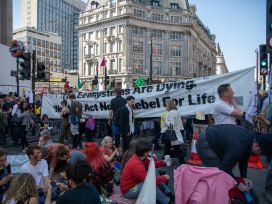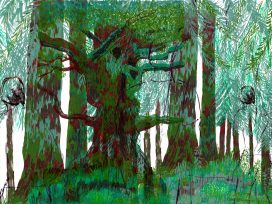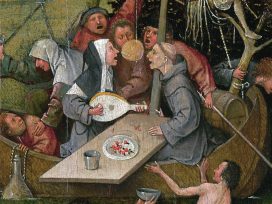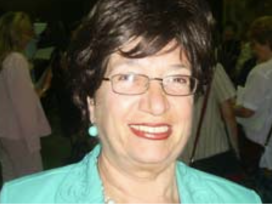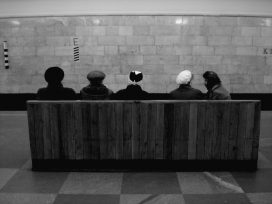In Algeria’s largest city, just a few miles from the frontier with Tunisia, in the Severe Burns Unit of Annaba Hospital, Sofiane Chebouki is in a deep coma. The doctors who are trying to look after him, under conditions that you scarcely dare to imagine, are concerned to inform us that “Sofiane has second or third degree burns over 80 per cent of his body. Several of his vital organs have also been affected by the fire.” Sofiane is one more victim of Algeria’s current malaise. This 25-year-old man “attempted to immolate himself”. That is the expression that the press is now using: “attempted to immolate himself”. But this man’s spectacular desire to do away with himself is hidden away in the “News in brief” section of El Watan. “Brief” is the term that also describes the life of a 16-year-old student, another who “attempted to immolate himself” inside his lycée in the Taher district in Jijel, a town in the east that is just as splendid as Annaba, located between the Mediterranean and the mountains where, before him, other young people took to the maquis. “He poured petrol over himself and then set fire to his own body.” In Algeria, setting fire to your own body has become the latest way of showing that you have no hope for the future and that you want the rest of the world to witness this, thanks to the mobile phones of stunned bystanders, who will share their visual scoop with others on the Internet.
But, whilst these images of dying flames are transmitted round the world, they will first be seen across Algeria. And yet they will not provoke a horrified reaction; they will not even make it onto the front page of the dailies. This will justify the views of those who serve the regime and keep repeating, as if to reassure themselves, that “Algeria is not Tunisia”. And that is true: Algeria is not Tunisia. Not, as their propaganda would have you believe, because this is a good place to live, but because the flames of hell have become so familiar here that they amount to nothing more than a minor news item. Just for the record, between 1991 and the present, there have been 200,000 deaths, axe killings, serial rapes, booby-trapped cars, a civil war, people who have been nameless, faceless, a war waged in the shadows, without heroes, without torturers, just victims. Victims of whom? Victims of what? Asking that question is forbidden; it is against the law and anyone who tries to do so in public will fall foul of the courts. The law that applies here is called – with a straight face – the “Charter for Peace and National Reconciliation”.
At a time when we are still trying to dress, never mind address, the wounds of a generation that was sacrificed, we find ourselves called to the bedside of a new generation “trying to immolate” itself. Every 20 years, one generation takes the place of the preceding one and invents new weapons to tell each other about, new weapons with which to accuse the dictators who burn us alive… but do so ever so slowly. After the suicide bombers of the 1990s, we now have the “self-immolators”. It is as if Algeria has become an enormous manga strip imagined by the fiendish mind of some expert in Chinese torture who, day after day, plagues your conscience and turns your body into nothing more than strips of agonised flesh. At that point dying is just another way to escape. To escape like the harragas, those people who, in makeshift boats, use the sea as a way out and cross the Mediterranean. They have no known grave and are never heard of again. Paradoxically, you might say that these Harragas burn their boats when they leave our shores.
So fire no longer horrifies us, not because we have no heart, but because we have too many memories. Living in a dictatorship is exhausting and humiliating. And yet each generation that plays some part in public or political affairs still carries that fire within it and, phoenix-like, is born anew from the ashes of its predecessor. And, every time, they give the lie to those who remain inside their own little bubbles and will not see: politicians, specialists in youth, journalists who, from their drawing-rooms in Algiers or elsewhere, write long editorials asking: “But why aren’t the Algerians doing anything? What are they waiting for?” But the Algerians are doing something. Indeed, they are constantly doing something. There are demonstrations, strikes, and arrests; there is the world of those nameless people, with no party affiliation, armed only with their humanity. And they are on the streets every day, putting up unbelievable resistance to the declared intention of successive powers to break them using clubs, tear-gas grenades, and the tanks that the young people call azraïne – the devil.
Throughout Algeria, at the same time as the Tunisians were occupying the streets, dozens and dozens of Algerians went out onto their streets to challenge the Algerian regime. No sooner had the tyres on the barricades ceased burning than government came with its explanation and the propaganda machine got under way: it transformed these political demonstrations into demonstrations “against the increase in price of oil and sugar”. This was just a polite translation of what, in their drawing-rooms and bunkers, they really think of this “nation of beggars that we keep in order through their bellies”. In Bab el Oued, in Belcourt, I have met these young people and they returned the compliment with a hatred that was boundless. They felt, they said, insulted by this reductive interpretation: “We don’t even know how much a can of oil costs,” they told me. “They’re trying to make everyone think we were demonstrating for the sake of a can of oil.” Whereas the truth is that they were demonstrating quite simply to remind the government that they are there, that they exist. They are just there, they are alive, they are on their feet despite the repressive arsenal trained on their balconies and windows, on their everyday life.
Another thing that they say, with their razor-sharp political awareness, is that “They are trying to wear us down”. In the district where they were speaking there are three police-stations and CCTV cameras on every street corner. It is like living in a prison, with highly-sophisticated surveillance, police sirens as background music from dawn to dusk, not to mention the plain-clothes officers, whom they refer to as hnoucha, “snakes”. In this world full of snakes they are nevertheless active. One of them told me: “We are like volcanoes; from time to time, just in order to breathe, we have to spit out fire.” What are referred to as riots are really political demonstrations that break down the invisible walls enclosing their freedoms. These demonstrations allow each of them to extend his own bit of the pavement, his own breathing-space, by just a few yards, and to do so by starting a fire between themselves and the brute force of the power of the state, their sole adversary in this conflict. Whilst not a single president (and it is worth recalling that, since the time when the elections were declared void, we have had five), not a single head of government (we’ve stopped counting those), not a single minister, not a single head of the army (as everyone knows, they are the real power in Algeria) – not one of these ever shows his face here. In these working-class districts, these places of resistance, revolt and anger – not just places of wretched poverty – the same ministers that strut across the state television screens, trotting out ridiculous statistics, do not have the courage to appear in person.
In Algeria the people who rule us and who manage the 150 billion dollars of foreign exchange reserves inhabit a different country. Whether they are military or civilian, or members of the oligarchies that are pillaging the country, they live in gilded cages; their beaches are private, their restaurants are members’ clubs, their districts are closed off behind portcullises of concrete and steel. The entire country is dotted with roadblocks: police roadblocks in the cities, military and gendarme roadblocks in the countryside. To get into Algiers it takes at least three hours to cover just a few kilometres. No one is really sure any more who is laying siege to whom. But ever since the Tunisians, our neighbours both geographically and in terms of suffering, threw out their president, Ben Ali – who had been the envy of and model for our own dictators, with a country that worked, citizens that were docile, bank accounts all over the place – ever since then, our autocrats have begun to act. As if, in just a few days, they could put right what it took them thirty years to destroy. There they go, sharing out the income from oil a little more generously, promising, left, right and centre, to solve the problems of unemployment, housing, leisure and even, “perhaps”, to lift the state of emergency that has been in force since 1992. All of a sudden they have woken up, started to put their skills into practice.
In no more than a couple of days the walls of the capital have been plastered with eye-catching posters inviting “young people” to come forward to get a “30,000 dinar interest-free loan”, the idea being to transform them all into entrepreneurs. More money they are going to throw away. The Ouyahia government unthinkingly decided to get rid of the black economy, which is made up of the undeclared unemployed, who have no social security cover, and hugely wealthy businessmen, who pay neither taxes nor social security contributions. But today it has decided to backtrack: it is as if it was making some kind of solemn declaration that there is no longer any real government, but that it quite likes hanging on to power anyway. The price increase on basic necessities? Cancelled. The “S 12”, that lifetime “birth certificate” that has wrecked the lives of thousands of Algerians, according to which we were supposed to acquire biometric passports and become even more heavily policed? Cancelled. The opposition parties that for years have been awaiting some sort of consent to their existence? Two of them recognized this very day. And so on, and so on. This banana republic is making a spectacle of itself in all its arrogance and incompetence.
Even Mouloud Hamrouche, the former head of government and our own Gorbachev manqué, is doing the same when he politely explains: “After twenty years people have realised that they have reached an impasse: those in power have lost much of their expertise. The government has lots of money but does not know how to spend it. It does not know how to mobilise the country’s economic potential because there is a failure to function properly in the government’s administrative services. That is one more problem, and a serious one.” They have 150 billion dollars in exchange reserves and they do not know what to do with it… And when they do let us know what they are doing with it, this is always as a result of some scandal, some instance of corruption, some transfer of public money running into billions of dollars. The entire machinery of state is involved, ranging from the Khalifa affair to the mind-boggling cost of public projects such as the East-West Motorway, the Algiers Metro, etc. They then manufacture court cases in which the underlings pay with their wrecked lives for a few trips abroad, whilst those who are really guilty proceed with impunity to take decisions affecting the lives and deaths of 35 million Algerians.
It is therefore easy enough to understand the declared reluctance on the part of the authorities to lift the state of emergency, which officially is being maintained “in order to combat terrorism”. They are, in any case quite incapable of stamping out the terrorism in question: young conscripts still die every day in Algeria and a grateful nation doesn’t even bother to sing their praises. A coffin and a burial is all they get. But perhaps said President Bouteflika in the course of an ordinary cabinet meeting, perhaps the state of emergency will be lifted, very soon or indeed any second now. This is a president who, in these days of revolutions throughout the Arab world, when the entire country is buzzing with a thousand rumours, when Algerians are following the Tunisian and then Egyptian revolutions with bated breath, did not take the trouble to address the nation. But, for a long time now, young people have taken no notice of the state of emergency; for a long time now they have been occupying the streets, in a fragmented sort of way, here and there but every day, like mosquitos tormenting oxen in their stables.
So what? So what will happen? Are young Algerians, that is to say three quarters of the population, going to respond to the rallying cry of their elders, who, divided though they may be, with slogans that cannot really be heard, are certainly hoping for change? Or, when they encounter those members of the elite who are hoping that public protests will kindle the blaze that will celebrate the meeting between the Street – that new actor on the political scene that no one saw coming – and their own histories, strewn with failure, abdication, division, fatigue, arrogance, will they ask them: “When we were trying to immolate ourselves, why was there no one but our mothers at our bedsides?”
The powers that be in Algeria do not care a damn about immolations, but they do fear that spark that will kindle the blaze. They are playing double or quits, and 150 billion dollars are at stake. Meanwhile the Europeans and Americans are asking themselves, in all seriousness, whether Arabs are really mature enough for democracy, rather as, in days gone by, they wondered whether black people and Indians were really human beings.
